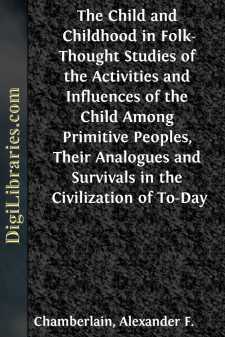Categories
- Antiques & Collectibles 13
- Architecture 36
- Art 48
- Bibles 22
- Biography & Autobiography 813
- Body, Mind & Spirit 142
- Business & Economics 28
- Children's Books 17
- Children's Fiction 14
- Computers 4
- Cooking 94
- Crafts & Hobbies 4
- Drama 346
- Education 46
- Family & Relationships 57
- Fiction 11829
- Games 19
- Gardening 17
- Health & Fitness 34
- History 1377
- House & Home 1
- Humor 147
- Juvenile Fiction 1873
- Juvenile Nonfiction 202
- Language Arts & Disciplines 88
- Law 16
- Literary Collections 686
- Literary Criticism 179
- Mathematics 13
- Medical 41
- Music 40
- Nature 179
- Non-Classifiable 1768
- Performing Arts 7
- Periodicals 1453
- Philosophy 64
- Photography 2
- Poetry 896
- Political Science 203
- Psychology 42
- Reference 154
- Religion 513
- Science 126
- Self-Help 84
- Social Science 81
- Sports & Recreation 34
- Study Aids 3
- Technology & Engineering 59
- Transportation 23
- Travel 463
- True Crime 29
Our website is made possible by displaying online advertisements to our visitors.
Please consider supporting us by disabling your ad blocker.
The Child and Childhood in Folk-Thought Studies of the Activities and Influences of the Child Among Primitive Peoples, Their Analogues and Survivals in the Civilization of To-Day
Categories:
Description:
Excerpt
CHAPTER I.
CHILD-STUDY.
Oneness with Nature is the glory of Childhood; oneness with Childhood is the glory of the Teacher.—G. Stanley Hall.
Homes ont l'estre comme metaulx,
Vie et augment des vegetaulx,
Instinct et sens comme les bruts,
Esprit comme anges en attributs.
[Man has as attributes: Being like metals,
Life and growth like plants,
Instinct and sense like animals,
Mind like angels.]—Jehan de Meung.
The Child is Father of the Man.—Wordsworth.
And he [Jesus] called to him a little child, and set him in the midst of them.—Matthew xviii. 2.
It was an Oriental poet who sang:—
"On parent knees, a naked, new-born child,
Weeping thou sat'st, while all around thee smiled;
So live, that, sinking in thy last, long sleep,
Calm thou mayst smile, while all around thee weep,"
and not so very long ago even the anthropologist seemed satisfied with the approximation of childhood and old age,—one glance at the babe in the cradle, one look at the graybeard on his deathbed, gave all the knowledge desired or sought for. Man, big, burly, healthy, omniscient, was the subject of all investigation. But now a change has come over the face of things. As did that great teacher of old, so, in our day, has one of the ministers of science "called to him a little child and set him in the midst of them,"—greatest in the kingdom of anthropology is assuredly that little child, as we were told centuries ago, by the prophet of Galilee, that he is greatest in the kingdom of heaven. The child, together with woman, who, in so many respects in which the essential human characteristics are concerned, so much resembles him, is now beyond doubt the most prominent figure in individual, as well as in racial, anthropology. Dr. D. G. Brinton, in an appreciative notice of the recent volume on Man and Woman, by Havelock Ellis, in which the secondary sexual differences between the male and the female portions of the human race are so well set forth and discussed, remarks: "The child, the infant in fact, alone possesses in their fulness 'the chief distinctive characters of humanity. The highest human types, as represented in men of genius, present a striking approximation to the child-type. In man, from about the third year onward, further growth is to some extent growth in degeneration and senility.' Hence the true tendency of the progressive evolution of the race is to become child-like, to become feminine." (Psych. Rev. I. 533.)
As Dr. Brinton notes, in this sense women are leading evolution—Goethe was right: Das Ewig-weibliche zieht uns hinan. But here belongs also the child-human, and he was right in very truth who said: "A little child shall lead them." What new meaning flashes into the words of the Christ, who, after declaring that "the kingdom of God cometh not with observation: neither shall they say, Lo, here! or, There! for lo, the kingdom of God is within you," in rebuke of the Pharisees, in rebuke of his own disciples, "called to him a little child and set him in the midst of them, and said, Verily I say unto you, Except ye turn, and become as little children, ye shall in no wise enter into the kingdom of heaven." Even physically, the key to the kingdom of heaven lies in childhood's keeping....


